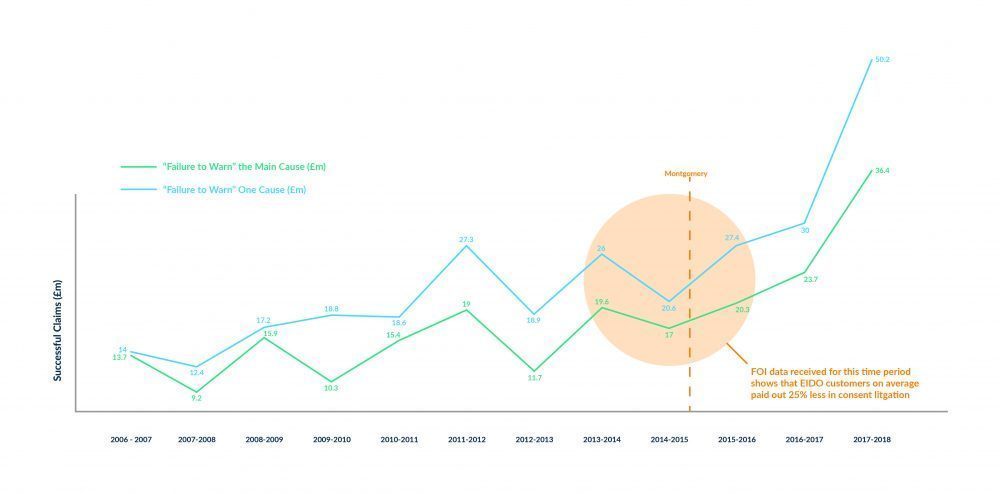Informed consent litigation continues to be a major financial drain for Acute NHS Trusts in England. Over a number of years, EIDO has been tracking successful litigation payments relating to “failure to warn”, and is able to demonstrate a concerning trend:
- In ten years, consent litigation costs for “failure to warn” have risen by 295%.
- In just three years since the Montgomery ruling, consent litigation costs for “failure to warn” have more than doubled.
Consent related litigation is on the increase
In the 2017-18 financial year, NHS liabilities involving “failure to warn” were in excess of £50 million. This rise can largely be credited to the landmark Montgomery v Lanarkshire case of 2015, which has made it much easier for claimants to include consent allegations, even if the original claim was not primarily consent-related. The following feedback from EIDO customers is becoming increasingly more commonplace:
Since the Montgomery Supreme Court decision, we are seeing more claims being advanced with…’furthermore, our client was not properly consented prior to the decision’. (An NHS Legal Services Manager)
EIDO at the forefront
An academic poster EIDO recently displayed at the Conversations on Consent national conference (organised by NHS Resolutions) won the “people’s choice” first prize, demonstrating the seriousness with which health professionals are engaging with this issue.

EIDO remains at the forefront of these developments, not only in reporting consent-related trends, but more importantly in offering practical solutions which help hospitals to reduce their exposure to litigation. From 2013-16, hospitals using EIDO’s consent information library paid out, on average, 25% less in consent litigation fees than hospitals using other sources of information.
Consent litigation data for the 2018-19 financial year will soon become available. Every indication is that the upwards trend will continue. It is time to address the substandard patient information being supplied across the NHS, and in doing so, reverse this trend.
For more information on how we can help you and your practice avoid informed consent litigation please visit our website, and don’t hesitate to get in touch!











